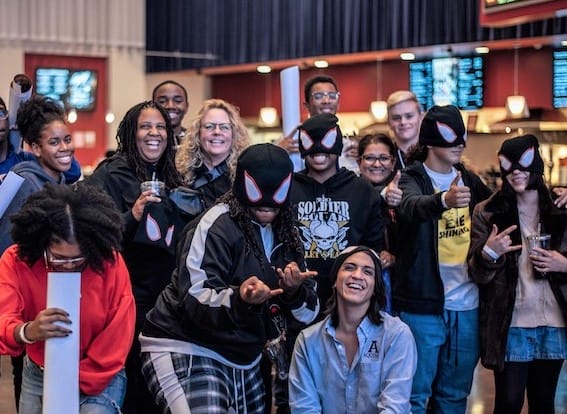Investing in Black Youth Is Crucial to the Region’s Future, Professor’s Oped Says

For Torie Weiston-Serdan, a professor in the university’s School of Educational Studies (SES) and director of the SES master’ s program in Community-Engaged Education and Social Change, there’s one group that policymakers should never overlook.
Youth.
“Our experience working with youth-serving organizations all over the country and the world has taught us a valuable lesson. Policies and initiatives work best when adults can learn to share space and wisdom with young people,” writes Weiston-Serdan and her co-authors in “Engaging Black Youth Will Strengthen the Inland Empire,” published this week in the Riverside Press-Enterprise.
Young people ‘hold us all accountable in powerful ways, pushing us to be better than we would be on our own…’
She wrote the piece with UCR Professor Karthick Ramakrishnan and Corey Jackson, CEO of the nonprofit Sigma Beta Xi.
“Young people,” they say, “hold us all accountable in powerful ways, pushing us to be better than we would be on our own and making initiatives and policy much more successful than we typically imagine.”
The commentary—which laments the death of George Floyd at the hands of Minneapolis police officers and the value of cell phone videos in serving as witnesses to violent incidents—also highlights the impact of young activists on social policy and introduces readers to an organization that Weiston-Serdan co-founded 13 years ago, the Youth Mentoring Action Network (YMAN).

YMAN is committed to supporting the “tenacity among Black youth” as well as providing them with “platforms and opportunities to utilize their voices, promote their healing and self-care, and allow older adults to be the best co-conspirators in that journey.”
The commentary also identifies Jackson’s Moreno Valley-based nonprofit Sigma Beta Xi, a group aimed at breaking the cycle of poverty and violence through mentoring, education, and organizing, although it acknowledges that “one or two organizations cannot do it alone.”
Instead, they argue, the current socio-political climate presents an opportunity “to build a stronger future by investing in Black youth and other youth of color. Our collective experience in the nonprofit sector, public policy, and philanthropy tell us that the greatest returns on investment come from building up youth leadership and inviting them to co-design policy solutions.”
- Learn more about Torie Weiston-Serdan at CGU here.
- Read their entire commentary in the Press-Enterprise here.